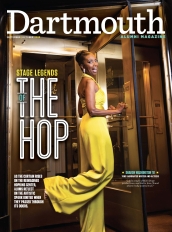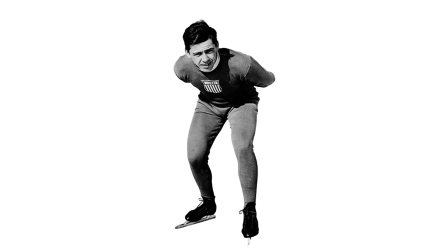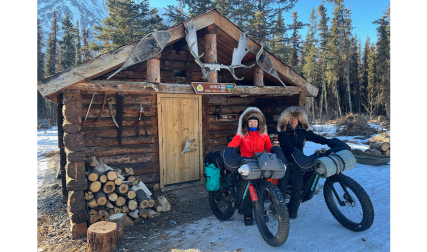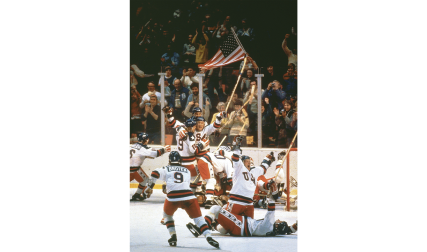Fast Lane Off-Ramp
Having spent a large part of my professional career working as a trial attorney, I really appreciated David Silverberg’s article about alumni who own and work on small, family-owned farms [“Modern Farmer,” July/August]. Although the economics of small-scale farming sound difficult, being close to the land and in a position to appreciate and enjoy nature sounds idyllic. I’m sure family-scale farming is not for everyone, but it is definitely appealing as a counterpoint to urban living and working in the “fast lane.”
I am delighted to see Dartmouth grads choosing this career path. I hope others who read the article were as moved as I was. Arguably the world would be a better place if fewer grads gravitated to Wall Street and more chose family farming.
DAVID A. LEVITT ’67
Chevy Chase, Maryland
Info from a Sphinx
So let me get this straight: The most secretive society on campus, the Sphinx Society, is in charge of doling out information [“Big Picture,” “Look Who’s Talking,” July/August]? Sure. I believe most of us have a question or two.
DIANE GSELL ’88
Monterey, California
Playing Hardball
I read “Pride and Progress: DGALA Celebrates 40 Years of Connection, Courage, and Community” [July/August] with particular interest. DGALA’s story really began more than 40 years ago, when I got wind that Dr. Ralph Elias ’32 wanted to make a bequest—specifically to support gay and lesbian undergraduates. At the time, the College recognized dozens of student groups, providing them with meeting space, a modest budget, and franking privileges. Dartmouth Lambda, as DGALA was then called, was not among those favored groups.
When Dr. Elias contacted the College, he was informed the administration would be happy to accept this bequest—but could not assure him the monies would be allocated as he requested. It was at this point that I got involved. I contacted Dr. Elias and with his blessing set up a not-for-profit organization in New Hampshire for the express purpose of receiving the Elias bequest and funneling it directly to Dartmouth Lambda.
The College was boxed in, but the administration did not give up easily, insisting that an ad hoc group of gay alumni meet with the director of alumni affairs, Michael Choukas Jr. ’51, to resolve the matter. His argument was that the proliferation of such special-interest groups reduced the amount of money that went directly into the Alumni Fund, which the College could spend any way it wished. After Choukas had gone on in this vein for some time, we informed him we were recording his remarks—which we were prepared to release to The New York Times. I will never forget what he said: “Boy, you guys sure play hardball.”
Well, yes, because that’s what it took. At the time homosexual activity was illegal in many states—and roundly condemned in all of them. This vicious calumny appeared in 1966 in Time magazine—which in its heyday both shaped and reflected majority opinion in this country: “It is a pathetic little second-rate substitute for reality, a pitiable flight from life.…But it deserves no encouragement, no glamorization, no rationalization, no fake status as minority martyrdom, no sophistry about simple differences in taste—and, above all, no pretense that it is anything but a pernicious sickness.”
For gay people born since then, it may be difficult to imagine what life was like for homosexuals in an era when a leading news magazine could describe homosexuality as a pernicious sickness. That makes it all the more important to preserve our history, candidly and compassionately.
EDWIN DORRANCE BAYRD JR. ’66
Hattiesburg, Mississippi
Stifling Dissent
When I arrived as a freshman in 1956, students and faculty were still talking about the Commencement address given in 1953. “Don’t join the book burners,” President Eisenhower had warned. I fear President Beilock [“Three Questions,” July/August] may well be on her way to doing just that.
DAVID GREENSTEIN ’60
New York City
Tragic Detentions
Dr. Joe Okimoto ’60, Med’61, has to be a fantastic fellow to make it through all the travails that he has with such resounding success [“Life, Interrupted,” March/April]. I send my huge regards and appreciation for his life. And I send also my deep apologies for what befell him during the Second World War.
I was 10 when the Japanese bombers appeared over Pearl Harbor and bombed the hell out of the American fleet. My brother-in-law was a sailor on the cruiser USS Indianapolis, stationed in Pearl Harbor. Can you imagine how I and my family felt right then about the Japanese? I ask Dr. Okimoto to try. Hitler was already crushing his fellow Europeans. Even from an ocean away, we could see we were in deep trouble and had to do what we could to return the fight.
Okimoto got caught in a world event—but how well he emerged from it. What President Trump is doing is an entirely different and equally tragic action. I shudder.
RODGER F. EWY ’53
Boulder, Colorado





